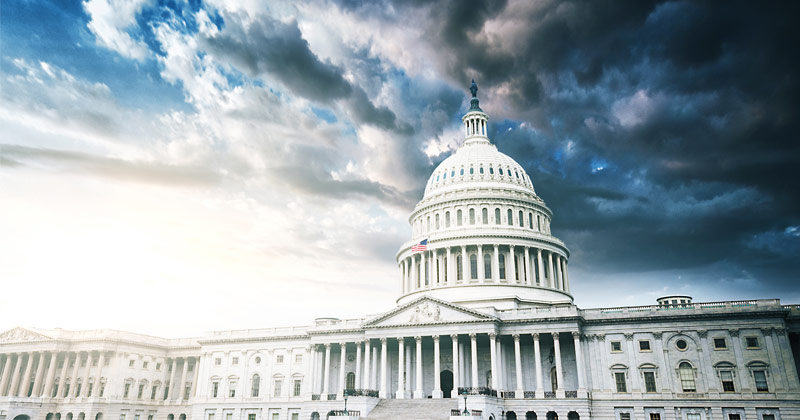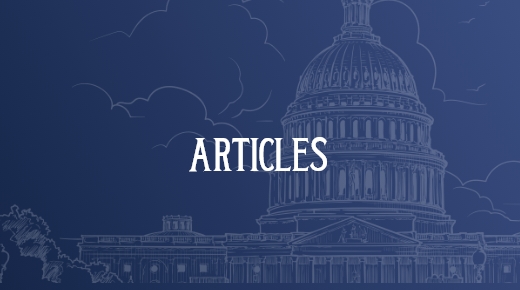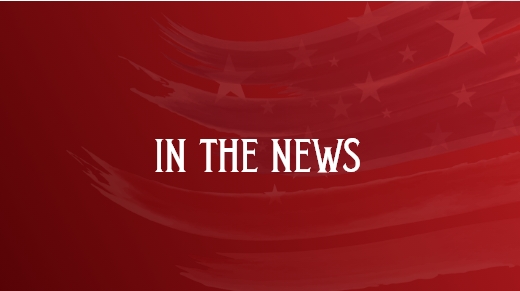
REP. LIZ CHENEY: Thank you very much, Mr. Chairman, and thank you for your tremendous leadership of this Committee. I know we all have benefitted greatly from your wisdom and your wise counsel, so thank you very much.
In April of 1861, when Abraham Lincoln issued the first call for volunteers for the Union Army, my great-great grandfather, Samuel Fletcher Cheney, joined the 21st Ohio Volunteer Infantry. He fought through all four years of the Civil War, from Chickamauga to Stones River to Atlanta. He marched with his unit in the Grand Review of Troops up Pennsylvania Avenue in May of 1865, past a reviewing stand where President Johnson and General Grant were seated.
Silas Canfield, the regimental historian of the 21st Ohio Valley Infantry, described the men in the unit this way: He said they had a, “just appreciation of the value and advantage of free government, and the necessity of defending and maintaining it, and they enlisted prepared to accept all the necessary labors, fatigues, exposures, dangers, and even death for the unity of our Nation, and the perpetuity of our institutions.”
I have found myself thinking often, especially since January 6th, of my great-great grandfather, and all those in every generation who have sacrificed so much for “the unity of our Nation and the perpetuity of our institutions.”
At the heart of our Republic is the guarantee of the peaceful transfer of power. Members of Congress are reminded of this every day as we pass through the Capitol Rotunda. There, eight magnificent paintings detail the earliest days of our Republic. One, painted by John Trumbull, depicts the moment in 1793 when George Washington resigned his commission, handing control of the Continental Army back to Congress. Trumbull called this, “one of the highest moral lessons ever given the world.” With this noble act, George Washington established the indispensable example of the peaceful transfer of power in our nation.
Standing on the West Front of the Capitol in 1981, President Ronald Reagan described it this way:
“The orderly transfer of authority as called for in the Constitution routinely takes place, as it has for almost two centuries, and few of us stop to think how unique we really are. In the eyes of many in the world, this every-4-year ceremony we accept as normal is nothing less than a miracle.”
Every President in our history has defended this orderly transfer of authority, except one. January 6, 2021 was the first time one American President refused his Constitutional duty to transfer power peacefully to the next.
In our work over the last 18 months, the Select Committee has recognized our obligation to do everything we can to ensure this never happens again. At the beginning of our investigation, we understood that tens of millions of Americans had been persuaded by President Trump that the 2020 Presidential election was stolen by overwhelming fraud and we also knew this was flatly false. We knew that dozens of state and federal judges had addressed and resolved all manner of allegations about the election. Our legal system functioned as it should, but our President would not accept the outcome.
Among the most shameful of this Committee’s findings was that President Trump sat in the dining room off the Oval Office watching the violent riot at the Capitol on television. For hours, he would not issue a public statement instructing his supporters to disperse and leave the Capitol, despite urgent pleas from his White House staff and dozens of others to do so. Members of his family, his White House lawyers, virtually all those around him knew that this simple act was critical. For hours, he would not do it. During this time, law enforcement agents were attacked and seriously injured, the Capitol was invaded, the electoral count was halted, and the lives of those in the Capitol were put at risk. In addition to being unlawful, as described in our report, this was an utter moral failure – and a clear dereliction of duty. Evidence of this can be seen in the testimony of President Trump’s own White House Counsel and several other White House witnesses. No man who would behave that way at that moment in time can ever serve in any position of authority in our nation again. He is unfit for any office.
The Committee recognizes that our work has only begun; it’s only the initial step in addressing President Trump’s effort to remain in office illegally. Prosecutors are considering the implications of the conduct that we describe in our report. As are citizens all across our nation.
In 1761, John Adams wrote, “(t)he very ground of our liberties is the freedom of elections.” Faith in our elections and the rule of law is paramount to our Republic. Election-deniers – those who refuse to accept lawful election results – purposely attack the rule of law and the foundation of our country.
The history of our time will show that the bravery of a handful of Americans, doing their duty, saved us from an even more grave Constitutional crisis. Elected officials, election workers, and public servants stood against Donald Trump’s corrupt pressure. Many of our Committee’s witnesses showed selfless patriotism and their words and courage will be remembered.
The brave men and women of the Capitol Police, the Metropolitan Police and all the other law enforcement officers who fought to defend us that day saved lives and our democracy.
Finally, I wish to thank my colleagues on this Committee. It has been a tremendous honor to serve with all of you. We have accomplished great and important things together and I hope we have set an example. And I also want to thank all of those who have honorably contributed to the work of our Committee and to our Report. We have accomplished much over a short period of time. Many of you sacrificed for the good of our nation. You have helped make history and, I hope, helped right the ship.
Thank you, Mr. Chairman. I yield back.




